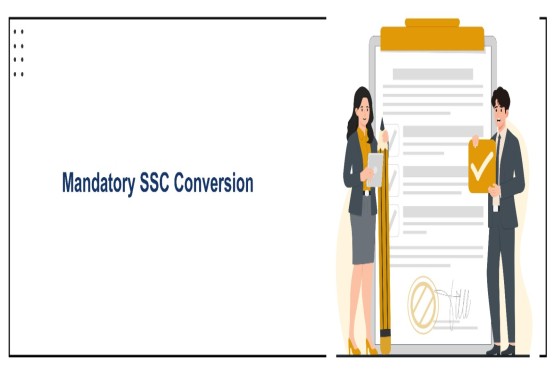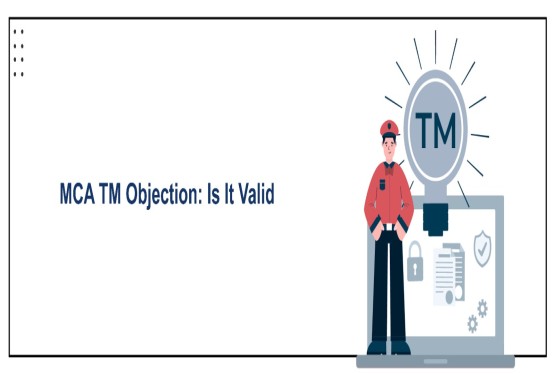In the recent Judgment of UNS Women Legal Association V. Bar council of India Bombay high court which is now became a matter of criticism among the legal Fraternity. In this judgment Bombay high court said that the POSH Act meant to protect women from sexual harassment at the workplace, does not extend to practicing advocates. The Court reasoned that since there’s no employer-employee relationship between advocates and the Bar Councils, So the provision of POSH cannot be applied in such cases. This decision, delivered in the case of UNS Women Legal Association v. Bar Council of India & Ors. (2025), has raised serious concerns about a potential protection gap for women lawyers working within India’s legal system.
UNS Women Legal Association v. Bar Council of India (2025)
In the year 2017, The UNS Women Legal Association filled a public interest litigation by requesting that there should be a permanent redressal mechanism for handling sexual harassment compliant within in the legal profession. The petition emphasized that the POSH Act, 2013 should be applicable to cases where female advocates face harassment from their male colleagues. The association argued that women lawyers, like professionals in any other field, often encounter harassment in their workspaces whether in courts, chambers, or legal offices and deserve the protection offered by the Act’s structured and sensitive framework. The case centered on whether the employer-employee relationship, which is essential for the POSH Act to apply, actually exists between Bar Councils and practicing advocates.
Court’s Observation
The Bombay High Court, through a bench of Chief Justice Alok Aradhe and Justice Sandeep Marne, made it clear that the POSH Act doesn't apply to practising women advocates, simply because there’s no employer-employee relationship between them and the Bar Councils. The judges explained that the POSH Act was designed to work within structured workplaces, where such a relationship exists and since advocates are not employed by the Bar Council of India (BCI) or the Bar Council of Maharashtra & Goa (BCMG), the law can’t be enforced in this context.
The Court also clarified that while Bar Councils do have Internal Committees, those are meant only for their own staff, not for lawyers who practice under them. If a woman lawyer faces harassment from a male colleague, her remedy lies under the Advocates Act, 1961, specifically Section 35, which deals with professional misconduct.
With this reasoning, the Court dismissed the PIL filed by the UNS Women Legal Association, stating that the existing legal mechanisms are enough even though many believe this leaves a critical gap in protection for women in the legal field.
Section 35 of Advocates Act
When a complaint of misconduct is made against an advocate, Section 35 of the Advocates Act lays out a clear procedure to follow:
-
The complaint is first sent to the Disciplinary Committee of the respective State Bar Council for examination.
-
If needed, the State Bar Council can decide either on its own or based on a request to transfer the case to a different disciplinary committee within the same council.
-
Before making any decision, the committee must give the advocate in question and the Advocate General a fair chance to present their side. Only after this can the committee issue the necessary orders.
Criticisms and Reaction
The Bombay High Court’s decision may have settled the legal question of whether the POSH Act applies to practising advocates but in doing so, it opened up a wider debate that’s far from over. Among women lawyers, legal professionals, and gender rights activists, the response has been one of deep concern, frustration, and calls for reform.
For many women in the legal fraternity, the ruling feels like a step backwards. The POSH Act was introduced to ensure that every woman, regardless of her field, feels safe at her workplace. And yet, by limiting its scope to only those in formal employer-employee relationships, the judgment has effectively left practising women advocates outside its protective umbrella. “Where do we go if something happens in court or chambers?” is the quiet but urgent question now being raised by many.
Critics Criticism
While the Court maintained that the Advocates Act, 1961 specifically Section 35 offers an alternate route, critics argue that this provision doesn’t provide the same level of protection, sensitivity, or structure as POSH. There are no dedicated Internal Committees, no clear timelines, no interim relief, and certainly no safeguards against retaliation. It’s a process built for handling misconduct generally not the unique, often delicate nature of sexual harassment cases.
Legal experts Criticism
Legal Experts point out that the Court's interpretation, though technically sound, reflects a rigid legal formalism. It treats the law as a box to fit into, rather than as a tool to protect. In doing so, it fails to recognise the evolving nature of professional spaces. Courtrooms, shared chambers, even virtual legal work environments these are all modern workplaces, even if they don’t have HR departments or contracts.
There’s also growing disappointment with the Bar Councils, who many feels should take proactive steps not wait for legislative reform. Suggestions include mandating that large law chambers (say, with 10 or more lawyers) establish Internal Complaints Committees voluntarily, even if not strictly required by law. After all, isn’t it the legal profession’s moral duty to set an example in matters of justice and workplace dignity?
A Gap in Justice of Sexual Harassments
This ruling has, perhaps inadvertently, exposed a glaring gap in India’s sexual harassment framework one that affects not just lawyers, but other independent professionals too, from doctors and consultants to freelancers and gig workers. And it has reignited calls to amend the POSH Act to expand its definition of workplace and worker, to reflect today’s realities.
Above all, it has become clear that legal protection should not depend on your employment contract, but on your right to feel safe and respected at work. For women advocates, the guardians of justice, that’s the very least they deserve.
Conclusion
This judgment by the Bombay High Court has left many in the legal community especially women feeling unheard and unprotected. While the Court may have followed the technical boundaries of the law, the bigger picture has been missed: women lawyers, who spend their days standing up for others, now find themselves without the same protection they help others seek.
It’s not just about legal definitions or workplace structures it’s about creating a safe and respectful environment for everyone, including those in professions that don’t fit neatly into traditional boxes. Advocates, freelancers, consultants these are real people working in real spaces, often facing real threats.
By excluding women advocates from the POSH Act, we’re not just leaving them vulnerable we’re sending the wrong message. That unless you have a formal boss or a signed contract, your safety doesn’t count as much. And that’s not the kind of justice we should be standing for.
It’s time for the law to catch up with reality. Whether through changes in legislation or proactive steps from the Bar Councils, what’s needed now is simple: acknowledgment, action, and accountability. Because every woman no matter where she works deserves to feel safe, heard, and protected.
And if the law doesn’t stand with the ones who uphold it, then we must seriously ask ourselves who is it really protecting?
Frequently Asked Questions (FAQs)
Q1. What was the Bombay High Court’s ruling in the UNS Women Legal Association v. Bar Council of India case?
Ans. The Bombay High Court ruled that the POSH Act, 2013, does not apply to practising advocates, as there is no employer-employee relationship between advocates and Bar Councils. Therefore, complaints of sexual harassment made by women advocates against male colleagues cannot be addressed under POSH.
Q2. Why did the Court say the POSH Act doesn’t apply to women lawyers?
Ans. The Court held that the POSH Act is only applicable in settings where a clear employer-employee relationship exists. Since Bar Councils regulate but do not employ practising advocates, the Act is not enforceable in such cases.
Q3. If POSH doesn’t apply, what legal remedy do women advocates have?
Ans. The Court pointed to Section 35 of the Advocates Act, 1961, which allows for action against lawyers who commit professional misconduct, including harassment. Complaints can be made to the Disciplinary Committee of the relevant State Bar Council.
Q4. What is the difference between POSH and Section 35 of the Advocates Act?
Ans. The POSH Act is a dedicated, victim-sensitive law for handling sexual harassment, with clear timelines, Internal Complaints Committees (ICCs), and protection against retaliation. Section 35, on the other hand, is a broader provision that deals with all kinds of professional misconduct, without the specific safeguards POSH offers.
Q5. Do Bar Councils have Internal Complaints Committees (ICCs)?
Ans. Yes, but these ICCs exist only for Bar Council employees, not for practising advocates. Women advocates cannot approach these committees for complaints against other lawyers.
Q6. Can large law chambers or firms set up their own ICCs?
Ans. Legally, they’re not required to unless they have an employer-employee setup. However, many experts are urging voluntary formation of ICCs in large chambers to ensure women lawyers have a safe mechanism for redressal.
Q7. What has been the reaction to the ruling?
Ans. The ruling has faced strong criticism from women’s rights groups, legal professionals, and scholars. Many believe it leaves a serious protection gap for women in the legal field and fails to reflect modern work realities.
Q8. Is there any possibility of reform following this decision?
Ans. Yes, the ruling has triggered renewed calls for legislative reform, including amending the POSH Act to cover independent professionals like lawyers, consultants, freelancers, and others who work outside traditional employment structures.
Q9. Does this judgment affect women in other professions too?
Ans. While the judgment is specific to lawyers, it raises broader concerns for other self-employed or independent professionals such as doctors, architects, and freelancers who might also fall outside the scope of POSH under a strict employer-employee interpretation.











































































_crop10_thumb.jpg)


































































_crop10_thumb.jpg)
_crop10_thumb.jpg)



_crop10_thumb.jpg)


_crop10_thumb.jpg)





_crop10_thumb.jpg)

_crop10_thumb.jpg)














-suratgujarat-section-158_crop10_thumb.jpg)
-suratgujarat_crop10_thumb.jpg)
-(33)_crop10_thumb.jpg)



-ahmedabad_crop10_thumb.jpg)
-learn_crop10_thumb.jpg)

-learnn_crop10_thumb.jpg)



























































_crop10_thumb.jpg)























_Guidelines_learn_crop10_thumb.jpg)























_learn_crop10_thumb.jpg)
_crop10_thumb.jpeg)










_crop10_thumb.jpg)




_Second_Amendment_Rules,_2025_learn_crop10_thumb.jpg)







_learn_crop10_thumb.jpg)











































_learn_crop10_thumb.jpeg)























_learn_crop10_thumb.jpg)



_rd_roc_learn_crop10_thumb.jpg)
















_learn_crop10_thumb.jpg)














_learn_crop10_thumb.jpg)
_Learn_crop10_thumb.jpg)











































_learn_crop10_thumb.jpg)




_learn_crop10_thumb.jpg)













_crop10_thumb.jpeg)




















